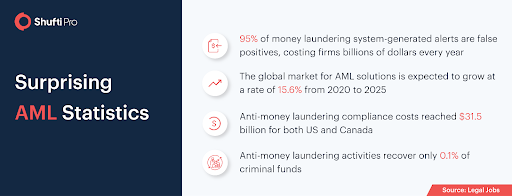Global KYC and AML Regulatory Updates To Watch for in 2022

In 2022, the world continues to experience the serious aftermath of the coronavirus pandemic, yet the regulatory response is increasing along with the economic implications. So far, global watchdogs have collaborated with financial as well as non-financial institutions to assure that they play a crucial part in normalizing the global chaos. However, many firms have realized the power of unified regulations, yet many of them oppose the idea.
First and foremost, the aim of regulatory bodies is to secure the business’s primary operations, channel credit, supply chains, and security systems. Industries need to draw attention in areas, for instance, making service digital, seamless customer experience, and utmost data protection.

Regulatory Update in the Finance Sector
Bank of England, PRA, and FCA: Diversity and Inclusion in the Financial Sector
In July 2021, financial watchdogs published a joint discussion draft on inclusion and diversity in the financial sector. The regulatory bodies find out that this can reduce groupthink, promote innovations, encourage debates, and can enhance results for the market as well as the clients, in support of financial stability. However, in this regard, the Financial Conduct Authority (FCA) and Prudential Regulation Authority (PRA) are intended to collaborate to make draft details more clear in the first quarter of 2022. However, the approved policy is expected to be issued in the third quarter. In addition to this, the Bank of England is also considering separately developing proposals to make the financial sector stable.
FinCEN Final CDD Rule
The FinCEN Final CDD Rule, which amends Bank Secrecy Act (BSA) standards and policies, aims to increase the transparency in the financial institutions and overcome the criminals from routing illicit cash out of the states. This rule further clarifies and improves the customer due diligence (CDD) regulations for US financial institutions including brokers, banks, and money exchanges. Under this amendment, the banks are required to determine and validate the true identities of clients, and beneficial owners of businesses before allowing them to carry out transactions or open an account.
This rule comes up with four crucial aspects:
- Determining and verifying the customers’ identities
- Verify UBOs in case of business
- Understand the purpose and nature of customers to develop risk assessment systems
- Conduct ongoing monitoring and suspicious transaction reporting according to the client’s risk level
Bank Secrecy Act (BSA) AML Regulation
The Bank of Secrecy Act is US-based law that covers the financial activities in the country. It aims to secure the individuals as well as the financial firms from money laundering, terrorist financing, and proliferation financing. This AML compliance allows financial institutions to establish compliance programs, recordkeeping, suspicious activity reporting for national banks, and foreign banks. This Act emerged as an amendment to incorporate the provision of the US Patriot Act which mandates every bank to develop a customer identification program as part of the BSA compliance program.
Following are the key aspects of BSA;
- Banks need to establish anti-money laundering programs to curb money laundering
- Financial institutions are obliged to incorporate identity verification systems to fulfill Know Your Customer compliance
- Under the BSA, banks are required to keep records of customers. Additionally, suspicious transaction activities, as well as transactions exceeding $10,000, must be reported to FinCEN
- According to the BSA, financial institutions need to keep the records and reports for 5 years
Regulatory Update for VA and VASPs
Estonia Virtual Assets Regulations
Estonia is one of the EU Member states that have acknowledged the true power of cryptocurrencies. Due to this, the country has come up with major amendments in its anti-money laundering regulations to legalize virtual assets service providers and cryptocurrencies. Estonia’s AML/CFT compliance is updated and streamlined with the EU’s sixth anti-money laundering directive.
According to the updates, all the virtual asset service providers operating within the country are required to streamline their operation with Money Laundering and Terrorist Financing Prevention Act. This was updated back in 2020, which labeled VASPs as financial institutions. Therefore, the cryptocurrency exchanges and service providers need to hire an AML officer, implement FATF travel and VASPs standards. Additionally, businesses develop a risk-based approach to employ enhanced due diligence protocols to screen high-risk entities. Additionally KYC and SARs checks should also be fulfilled. However, the risk assessments and suspicious activities are to be reported to the FIU.
Suggested Read: Estonia’s AML Act Amendments – Securing Virtual Currencies in 2022
FATF Regulation for VAs and VASPs
The Financial Action Task Force (FATF) has updated its guidance on the risk-based approach for cryptocurrencies and virtual asset service providers. The first draft was originally published in 2019 when FATF finalized the AML/CFT regulations for VA and VASPs. Following are the six amendments in FATF’s risk-based approach for cryptocurrencies;
- Clarified the definition of VA and VASPs
- Guidance regarding how to apply FATF standards on Stablecoins
- Standards for assessing potential risk for P2P transactions
- Amended licensing requirements for VASPs registering
- Made travel rule obligatory for customers carrying virtual assets
- Includes crucial aspects of information-sharing and co-operation among VASP
The aim of the update is to maintain a secure playing field for VASPs based upon the nature and type of financial services they are providing to streamline the FATF’s AML/CFT regulations.
Suggested read: FATF’s Stance on Digitizing FIUs and Adopting A Risk-Based Approach for VAs
6AMLD for Cryptocurrencies
To enhance the fifth money laundering directive (5AMLD), the EU came up with the sixth anti-money laundering directive. This was majorly for the virtual assets exchanges and digital wallets service providers within the European Member states to curb money laundering activities through cryptocurrencies. This was a major breakthrough to regulate virtual assets and VASPs. Under this law, all crypto businesses are needed to perform customer due diligence, ongoing client monitoring, maintain suspicious transaction reports and risk assessment to make customer risk profiles. Other than this, crypto exchanges are needed to get registered with FCA in the UK. In addition to this, 6AMLD has also come up with strict and rigid punishments for non-compliant businesses and individuals found guilty in money laundering proceedings. The imprisonment is increased from one to 4 years. Other than this, sanctions and hefty fines are also listed.
Suggest Read: 6AMLD of EU – A detailed insight
To Sum Up…
Every year, regulatory bodies come up with new laws or amendments to secure the digital landscape. Due to the Covid pandemic, criminal activities skyrocketed, which was an eye-opener for the regulatory bodies. Various regulations are legislated like AML, KYC and CFT to curb financial crimes.
Shuftis’ state-of-the-art identity verification and AML screening solution is an ideal option for financial and non-financial firms to fight financial crimes. Shufti screens identities against 1700+ watchlists in less than a second and helps businesses to stay put with global regulatory compliances.
For information on how we can help you in KYC/AML compliance, get in touch with our experts.











